Our History
The tradition continues
With eyes always on the future, Gainesway maintains clear roots in its history. A picturesque working farm of 1,500 acres along Paris Pike, today’s Gainesway encompasses the former Greentree Stud and Whitney Farm, legendary breeding operations whose decades of prominence ensured their bloodstock’s continued influence on the modern Thoroughbred. Through careful stewardship of this land, Gainesway is writing its own chapter in the Bluegrass.
-
Frontiersman claims acreage near Lexington
Apr 8, 1774John Floyd, a frontiersman hired to identify undeveloped land for men who owned claims, handpicked two 1,000-acre parcels along Elkhorn Creek – one for John Preston, a wealthy military colleague of George Washington’s, and another for Preston’s brother-in-law John Howard. He was attracted to that land just outside present-day Lexington, Kentucky, because it adjoined a buffalo trace used by the Shawnee Indians as well as Anglo settlers. It was Howard’s plot that would later compose the majority of today’s Gainesway Farm.
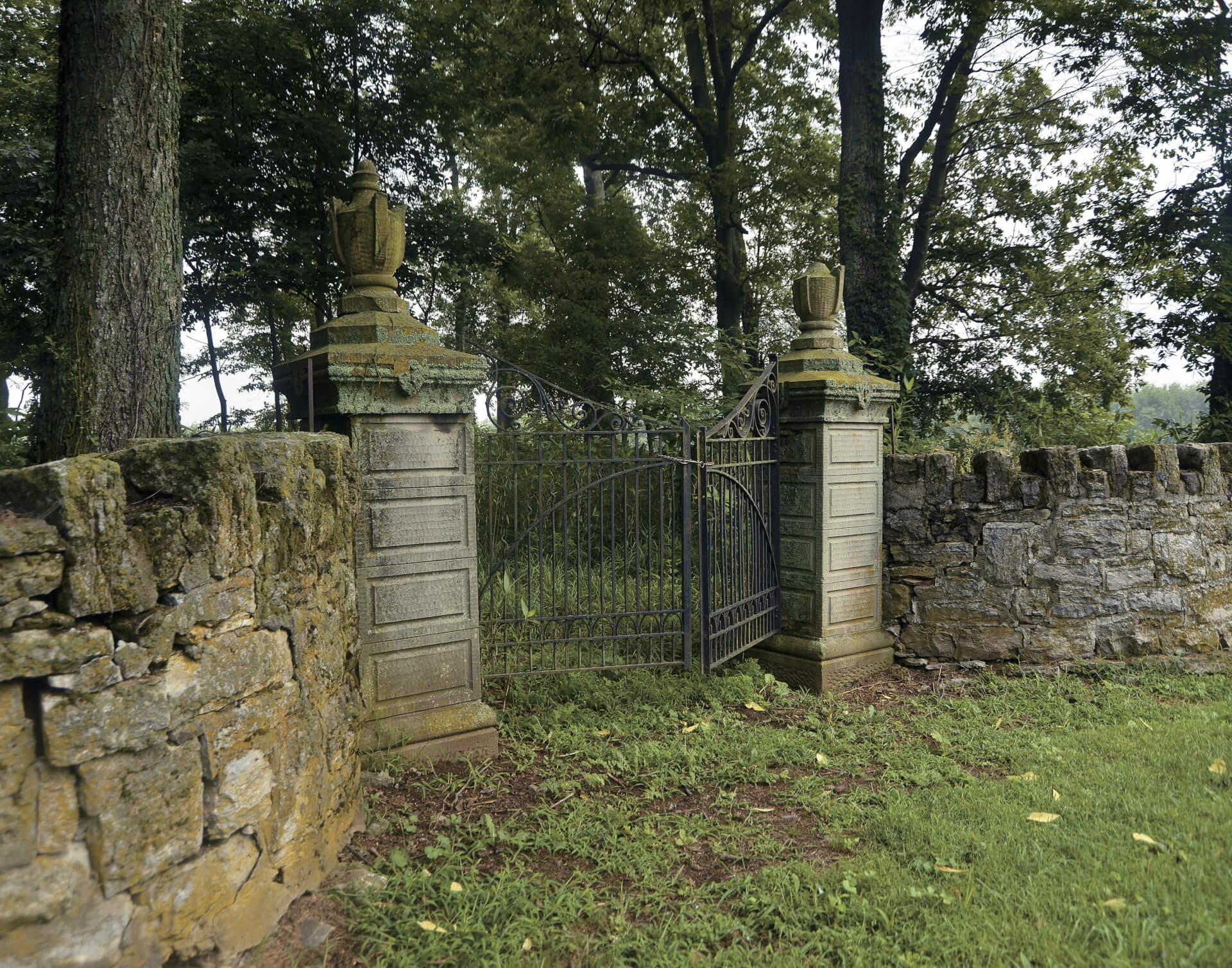
-
Haggin buys Elmendorf Farm
Oct 22, 1897In October 1897, James Ben Ali Haggin, a wealthy lawyer and entrepreneur who owned eponymous 1886 Kentucky Derby winner Ben Ali, purchased a 544-acre farm called Elmendorf on what had previously been John Howard’s land. Haggin grew Elmendorf to nearly 10,000 acres and transformed it into America’s foremost dairy as well as a massive Thoroughbred stud that bred the likes of Stone Street, winner of the 1908 Kentucky Derby.

-
H.P. Whitney invests in the Bluegrass
Mar 7, 1917Following James Ben Ali Haggin’s death in 1914, his Elmendorf Farm was broken up and offered for sale. In 1917, Harry Payne (H.P.) Whitney bought 614 acres of the land that would later become the heart of Gainesway Farm. Here he stood foundation sires Broomstick, Whisk Broom, and Peter Pan and kept broodmares such as 1915 Kentucky Derby winner Regret. The circle barns seen on the property today are remnants of the portion of Elmendorf known as Muir Farm.

-
Payne Whitney develops Greentree Stud
Oct 28, 1925In October 1925, H.P. Whitney’s younger brother Payne (pictured with his wife and daughter) bought 752 acres formerly belonging to Saddlebred breeder John T. Hughes and James Ben Ali Haggin’s Elmendorf Farm and named it Greentree Stud. After Payne Whitney’s death, his wife Helen Hay Whitney and children, John Hay “Jock” Whitney and Joan Whitney Payson, brought Greentree Stud into greater prominence, racing such horses as Kentucky Derby winners Twenty Grand and Shut Out and Horses of the Year Capot and Tom Fool, who became an important sire at Greentree.
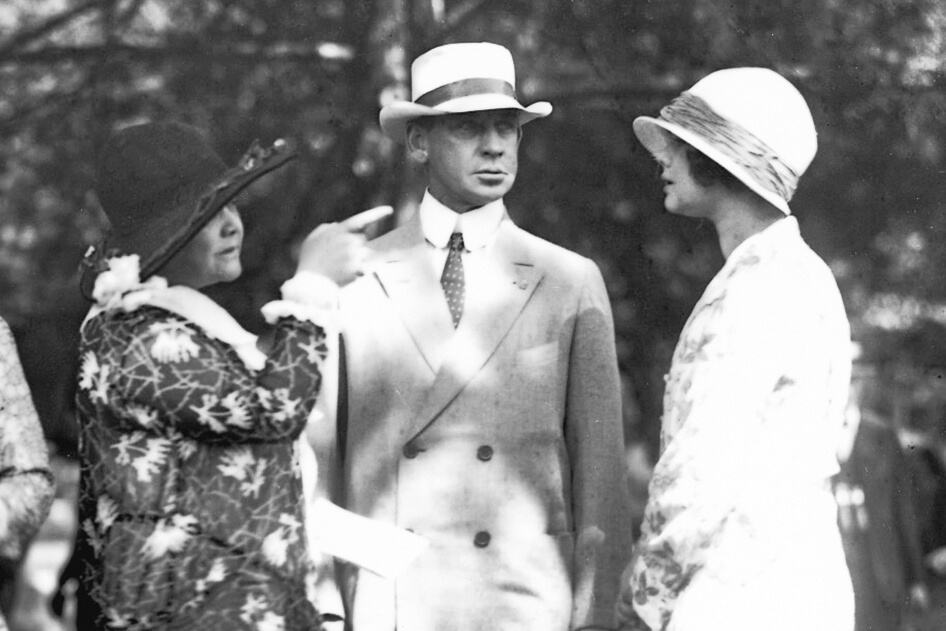
-
C.V. Whitney takes over Whitney Farm
Oct 26, 1930When H.P. Whitney died in 1930, his son Cornelius Vanderbilt (C.V.) “Sonny” Whitney was initially lukewarm about taking over his father’s racing stable. Sonny ultimately decided to carry on the tradition, guiding the farm into its golden era. He raced champions such as 1946 2-year-old filly First Flight, 1947 3-year-old colt Phalanx, 1951 Horse of the Year Counterpoint, and 1959 3-year-old filly Silver Spoon.
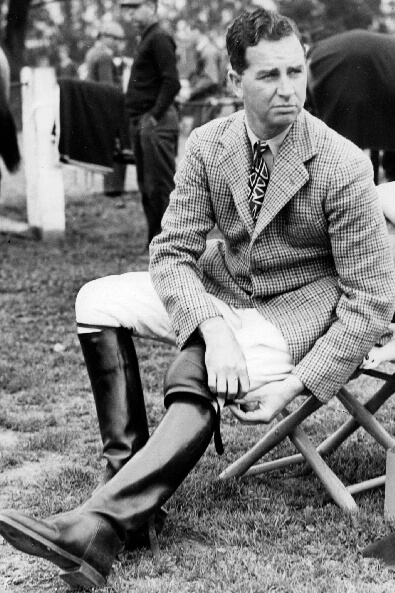
-
Whitney Farm imports foreign blood
Nov 6, 1940In search of new bloodlines for his stud, C.V. “Sonny” Whitney purchased 1936 Epsom Derby winner Mahmoud in 1940 from the Aga Khan for $85,000. The then 7-year-old stallion boarded a ship to the United States only to be returned to port because of a misunderstanding over export papers. That vessel was later torpedoed by a German U-boat, killing all on board. Mahmoud made it across the Atlantic on another ship and become one of the most influential sires of the 20th century.
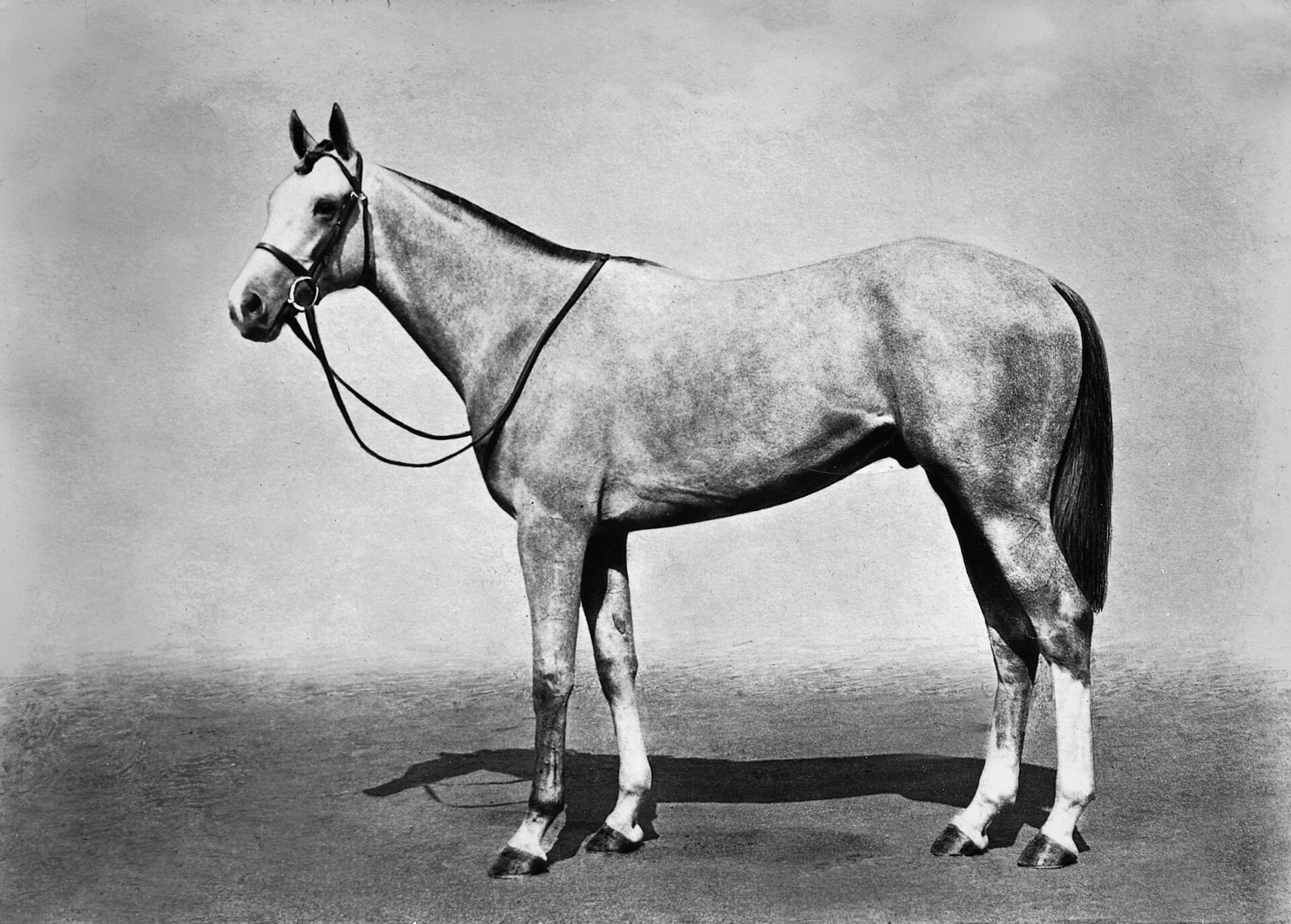
-
C.V. Whitney sells half of farm to Gaines
Dec 23, 1965By the mid-1960s, an aging C.V. “Sonny” Whitney (pictured with wife Marylou, m. 1958), was ready to downsize his Thoroughbred operation. He called young upstart John Gaines, who he hadn’t yet met but respected, and asked if he’d like to buy half his land and horses. In 1965, Gaines bought 30 broodmares and 489 acres of Whitney Farm and leased the property out for eight years before opening it as a stallion station under the name Gainesway in 1974.
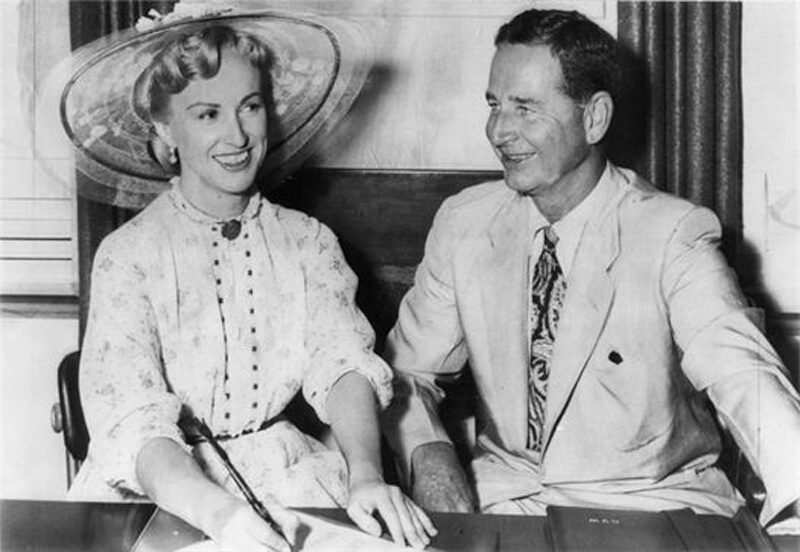
-
Property rechristened as Gainesway
Jan 1, 1974When John Gaines brought his Gainesway operation to Paris Pike in 1974, he owned 14 stallions. By 1982 his international stallion roster numbered an unparalleled 52, including Bold Bidder, Lyphard, Riverman, Sharpen Up, and Vaguely Noble, thanks in part to his many business partners and syndicates. He turned Gainesway into a flourishing and renowned breeding operation that paved the way for Kentucky becoming the Thoroughbred breeding capital of the world. Adding to his legacy, Gaines conceived the idea for the Breeders’ Cup, a championship event for horse racing that was first held in 1984.
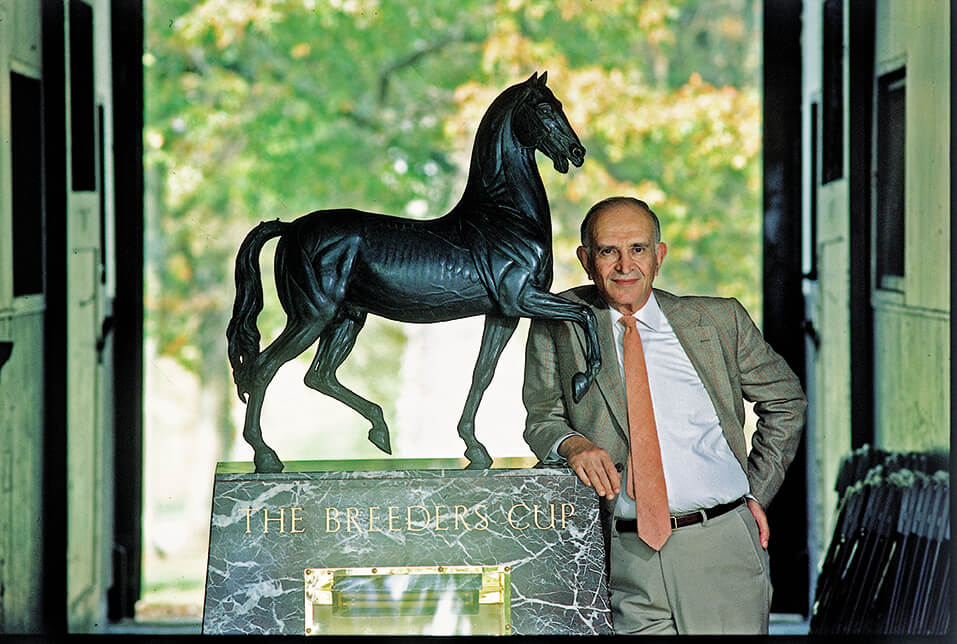
-
Graham Beck purchases Gainesway
Feb 20, 1989When John Gaines mentioned to Graham Beck that he was considering selling Gainesway, the South African coal magnate and Thoroughbred breeder was all ears. In February 1989, Beck purchased Gainesway’s 489 acres and the rights to 36 syndicated stallions, including Lyphard and Blushing Groom, for $7.5 million. Quickly enamored by Central Kentucky, Beck acquired the adjoining Greentree Stud in May of that year for $5.4 million and leased Whitney Farm until 1998, when Marylou Whitney sold him the majority. The three farms, totaling 1,500 acres, now compose Gainesway.
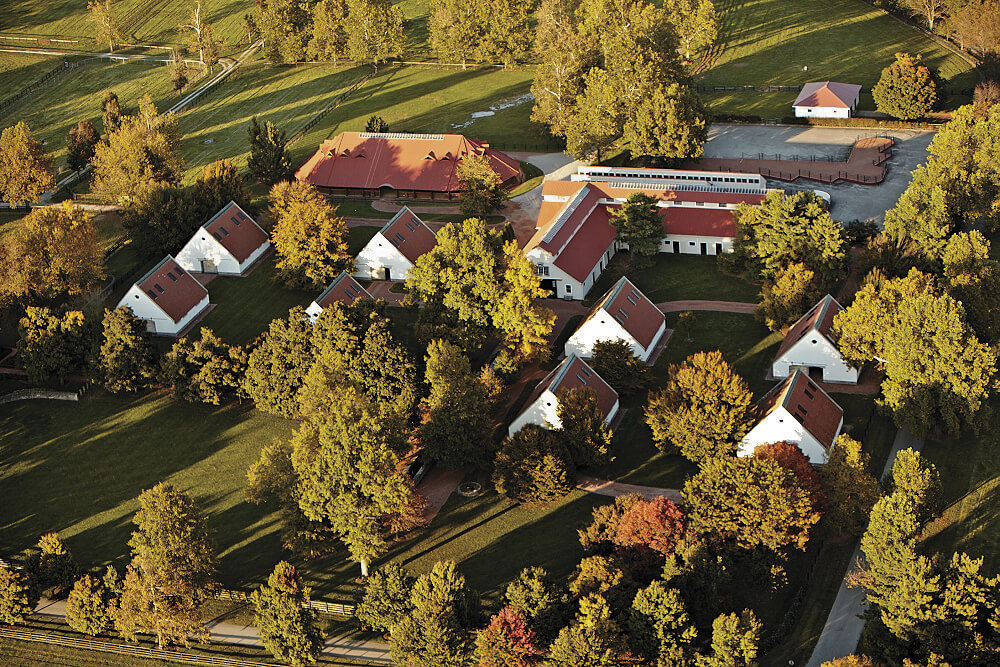
-
Unbridled retires to Gainesway
Nov 13, 1991In November 1991, Unbridled retired from racing to begin his stud career at Gainesway. Winner of the 1990 Kentucky Derby and Breeders’ Cup Classic, Unbridled became a successful sire who is well represented in today’s classic pedigrees, notably through Gainesway stallions Empire Maker, as sire, and Tapit, as broodmare sire.
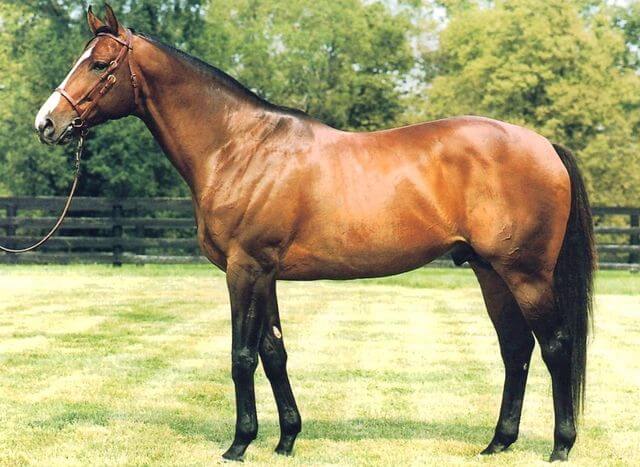
-
Antony Beck takes role of Gainesway president
Jan 1, 1997With Gainesway owner Graham Beck (pictured with son Antony) spending much of his time in his native South Africa, the farm suffered from absentee ownership. It was an opportunity for Antony, who with wife Angela (m. 1992) was raising a young family in Lexington, to take a larger role as president of Gainesway in 1997. Now living and working on the property, Antony made Gainesway a bigger player in public sales and worked to reinvigorate the stallion roster.
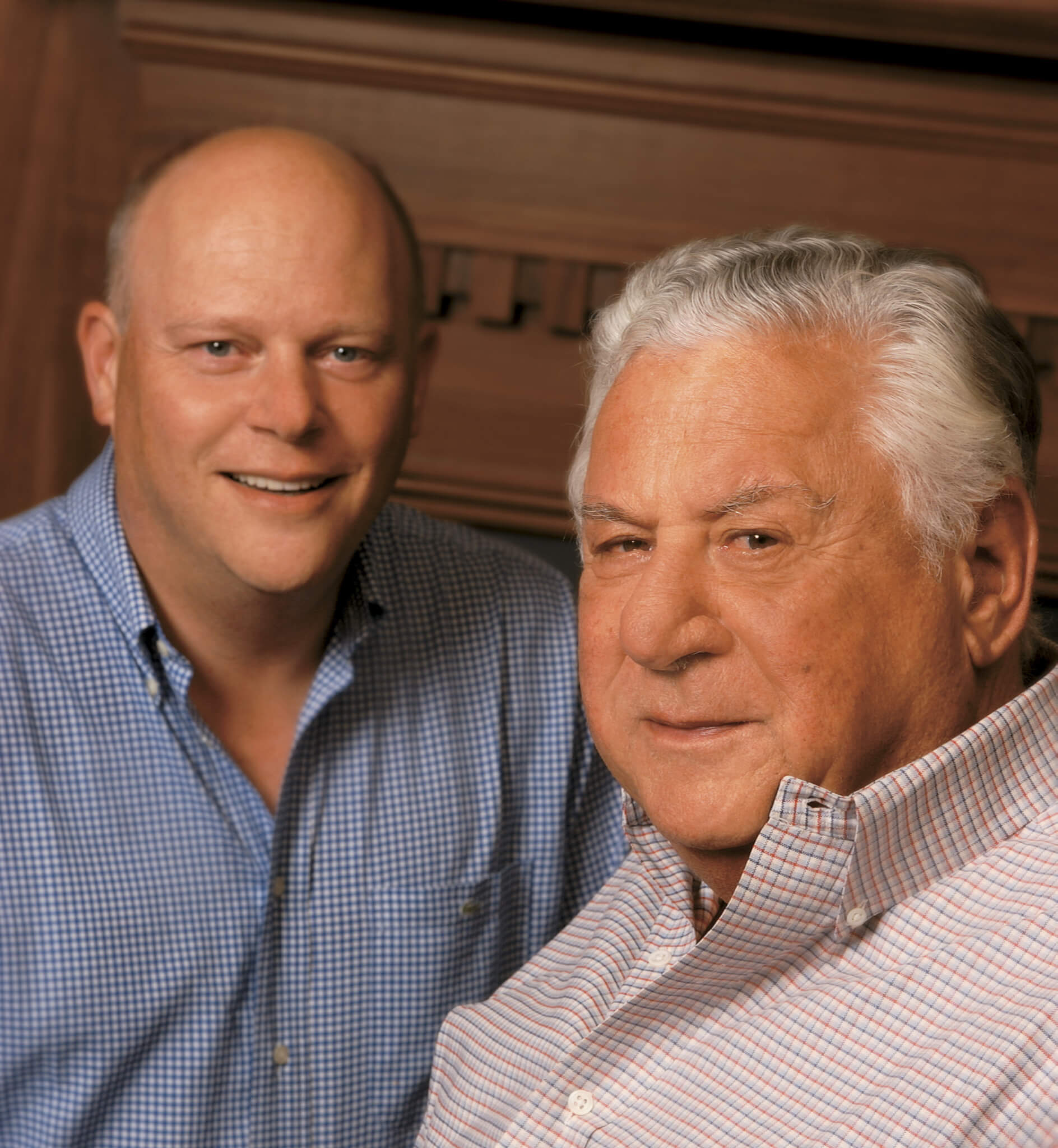
-
Tapit arrives at Gainesway
Oct 24, 2004Tapit, a striking gray son of Pulpit who had won the Wood Memorial for owner Winchell Thoroughbreds, retired to Gainesway at the end of the 2004 season. A member of the same female family as successful sires Relaunch and Rubiano, Tapit quickly developed into a breed-shaping sire in his own right. The leading North American sire in 2014, 2015, and 2016, Tapit has sired 27 Grade 1 winners and earners of $170 million.

-
Gainesway repatriates Empire Maker
Oct 23, 2015In 2015, Gainesway partnered with Chilean-based Don Alberto Corp. to purchase successful sire Empire Maker and relocate the son of Unbridled from Japan to Gainesway. Winner of the 2003 Belmont Stakes, Florida Derby, and Wood Memorial, Empire Maker had entered stud in 2004 for owner/breeder Juddmonte Farms before standing in Japan for five seasons. Empire Maker sired 12 Grade 1 winners from his Kentucky crops and became grandsire of Triple Crown winner American Pharoah. These credentials prompted his return to the Bluegrass.
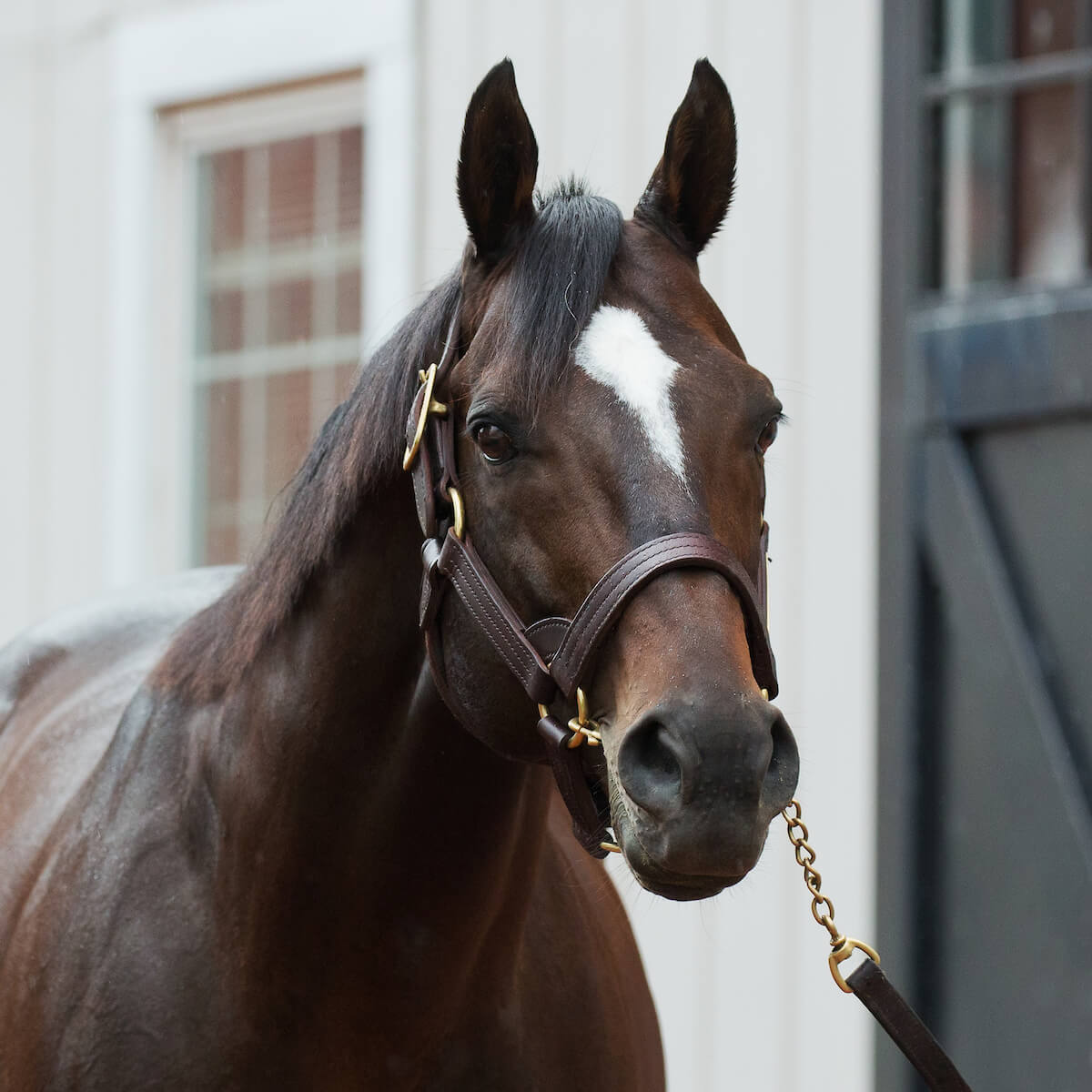
The Farm
Our property encompasses 1,500 prime acres of the finest Bluegrass land in Kentucky.
The FarmMeet The Team
Our people have the knowledge and expertise to help you breed, raise, or buy a successful Thoroughbred.
Meet The Team